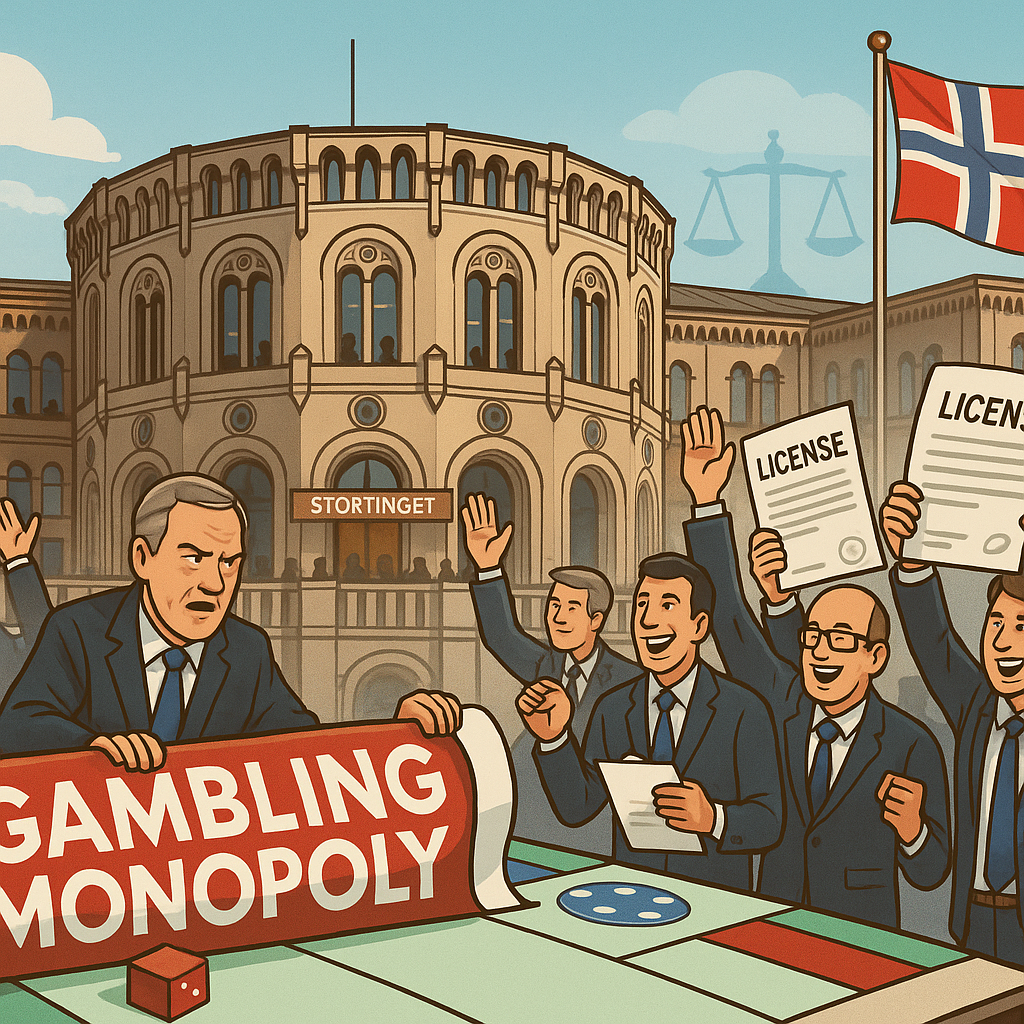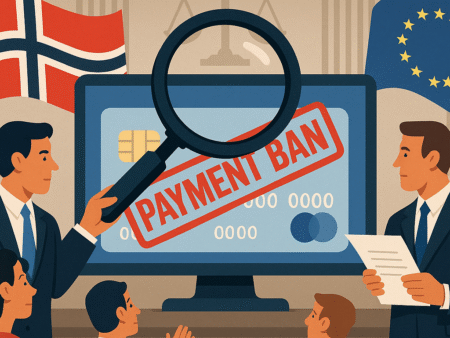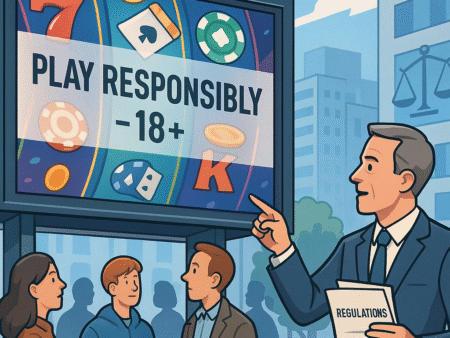
The future of gambling in Norway is at a crossroads. For decades, betting and lotteries have been controlled under a Norway gambling monopoly, giving state-owned companies exclusive rights to operate. Now, growing political pressure, consumer demand, and international comparisons have sparked serious debate about moving toward an open licensing model.
This article explores the history of the monopoly, the reasons for change, the details of proposed reforms, and the impact on both players and gambling operators Norway.
Table of Contents
History of the Norway Gambling Monopoly
The Norway gambling monopoly dates back to the mid-20th century, when authorities concluded that gambling should be tightly controlled to protect consumers and prevent criminal activity.
Two organizations were given exclusive roles:
- Norsk Tipping, overseeing lotteries and sports betting.
- Norsk Rikstoto, managing horse racing.
For years, this system was seen as a model of strict regulation. But as technology evolved and online casinos Norway grew in popularity, cracks began to show.
Why a Norwegian Gambling Reform Is Being Considered
In recent years, the volume of criticism directed at Norway’s gambling framework has increased dramatically, with many stakeholders insisting that the current model has outlived its usefulness. What once seemed like a reasonable way to control betting and protect vulnerable groups is now viewed by many as outdated and increasingly ineffective in addressing modern realities.
One of the clearest signs of strain comes from player behavior. A growing number of Norwegian consumers are turning to international platforms that are based outside the country. These sites often offer more attractive odds, a wider selection of games, and bonus structures that feel more generous than what is available at home. As a result, large sums of money are flowing abroad every year, bypassing the national system entirely.
This shift also carries significant consequences for public finances. Because offshore platforms are not subject to domestic taxation, billions of kroner in potential revenue are lost annually. These funds could otherwise be directed toward social services, healthcare, or programs designed to reduce gambling-related harm. The inability to capture this revenue has become a central argument for those advocating reform, as it highlights the inefficiency of clinging to a closed system in a globalized digital market.
Beyond financial concerns, critics argue that the monopoly has stifled innovation and limited consumer choice. With only a small number of state-controlled providers, the range of products and technologies available to players has lagged behind what is offered in other countries. While Norwegians are eager adopters of digital entertainment, their domestic gambling market has remained relatively static, creating frustration among those who expect modern, flexible, and user-friendly platforms.
Advocacy groups add another layer to the discussion by pointing out the importance of consumer protection. They argue that allowing competition under strict regulation could actually improve safeguards, as licensed companies would be required to meet high standards of transparency, fairness, and responsible gaming practices. Instead of relying on a single model that struggles to adapt, a competitive system could distribute responsibility across multiple actors while giving regulators more tools to enforce accountability.
Taken together, these arguments illustrate why the call for change has grown so strong. The status quo is increasingly seen as unable to address the economic, technological, and social challenges of today’s gambling landscape. For many, reform is not just desirable but necessary to create a system that works for both players and society as a whole.
Proposals for a Licensing System Norway
Policymakers are now seriously considering whether a new licensing framework could provide the answers that the current arrangement cannot. Rather than relying on a closed system controlled entirely by state-owned entities, the idea is to open the market in a way that allows private companies to participate under carefully designed rules. This would not be an unregulated free-for-all but a tightly monitored structure intended to balance competition with public responsibility.
The inspiration for such a shift comes in part from neighboring countries. Both Sweden and Denmark have already moved away from exclusive state control and introduced systems where multiple operators can apply for permits. These models have shown that it is possible to attract investment, broaden the range of services available to players, and still maintain strong protections for consumers. For Norwegian lawmakers, these examples provide a practical roadmap for reform.
Several key proposals are under discussion:
- Opening applications to private companies. This would allow both domestic businesses and established international brands to seek authorization to operate legally within Norway, expanding the diversity of offerings available to players.
- Introducing a dedicated gaming tax. By requiring licensed operators to contribute a percentage of their revenues to the state, the government could reclaim funds that are currently flowing abroad to unregulated sites. These revenues could then be reinvested in public services such as healthcare, education, or addiction treatment programs.
- Mandating robust compliance with safer gambling measures. Every licensed provider would need to integrate tools such as spending limits, self-exclusion systems, and clear disclosure of terms. Regular audits would ensure that these measures are more than just promises on paper.
Adopting such a structure would represent a dramatic departure from the monopoly model that has defined Norwegian gambling for decades. Instead of one or two state-backed organizations controlling the entire sector, the market would become more open and competitive. Players would benefit from a broader selection of products, the state would recover valuable tax revenue, and regulators would gain stronger mechanisms for holding multiple operators accountable.
In essence, the move toward licensing is framed as a way to modernize the industry, align with international best practices, and create a healthier balance between consumer freedom and public protection.

Impacts on Gambling Operators Norway
For gambling operators Norway, the potential reform is both opportunity and challenge.
- Opportunities: New operators would gain legal access to the Norwegian market, reaching players who currently use offshore sites.
- Challenges: Compliance with the new framework would involve high costs and frequent audits.
For existing state-owned operators, the transition away from the Norway gambling monopoly could mean losing exclusive control but gaining freedom to innovate.
What It Means for Online Casinos Norway
Players already turn to online casinos Norway outside the monopoly. Under a licensing system, they could enjoy the same variety and bonuses without the risk of unregulated play.
- Positive for players: More options, better promotions, safer oversight.
- Negative for some: More advertising and potential risk of problem gambling.
The debate highlights whether the benefits of ending the Norway gambling monopoly outweigh these risks.
Lessons from Other Nordic Countries
- Sweden: Abandoned its monopoly in 2019; now runs a licensing system.
- Denmark: Has successfully operated a multi-license model for years.
- Finland: Announced plans to dismantle its monopoly by 2026.
These examples strengthen the case for a Norwegian gambling reform, showing that controlled liberalization can work.
Arguments For and Against Ending the Monopoly
For:
- More competition benefits players.
- More tax revenue for the state.
- Safer environment compared to offshore online casinos Norway.
Against:
- Risk of advertising overload.
- Fear of higher rates of problem gambling.
- Loss of guaranteed funding for charities and sports provided by the Norway gambling monopoly.
Outlook for the Licensing System Norway
If the government proceeds with reform, the licensing system Norway could be in place within the next few years. The outcome will depend on political negotiations, public opinion, and pressure from EU and EEA institutions.
For players, the change promises more choice. For gambling operators Norway, it creates both new markets and new obligations.
Authors Conclusion
The current debate surrounding Norway’s gambling framework extends well beyond questions of financial performance or tax revenue. At its core, the discussion touches on broader themes such as fairness in consumer choice, the responsibility of protecting vulnerable individuals, and the challenge of updating laws to reflect the realities of a digital-first society. For many critics, the issue is not simply whether the state should retain exclusive control but whether the existing system can realistically deliver on the promises of transparency, safety, and accountability in an era where players can access global platforms with just a few clicks.
Proposals for reform highlight the potential benefits of modernization. A more open structure could create space for innovation, encourage better competition, and introduce higher standards for how companies interact with their customers. International operators might view such a shift as an opportunity to bring new products and technologies into the Norwegian market, while domestic providers could gain the freedom to evolve beyond the constraints of a traditional monopoly. For players themselves, a reformed system could translate into greater variety, clearer protections, and a level of oversight that balances enjoyment with social responsibility.
At the same time, the path forward is far from simple. Implementing a new model would require difficult policy choices, careful regulatory design, and strong enforcement mechanisms to ensure that liberalization does not come at the cost of increased harm. Opponents of reform caution that loosening the framework might lead to an explosion of advertising or greater risks of problem gambling if not handled with precision. These competing visions make the debate as much about values and priorities as about economics.
What remains undeniable is that the existing monopoly no longer enjoys the unquestioned support it once had. Public opinion is shifting, policymakers are increasingly open to alternatives, and international comparisons highlight just how out of step Norway has become with its neighbors. Whether reform takes place in the near future or faces further political delays, one fact is clear: the current system is under closer scrutiny now than at any time in its history, and the pressure for change is unlikely to fade.











